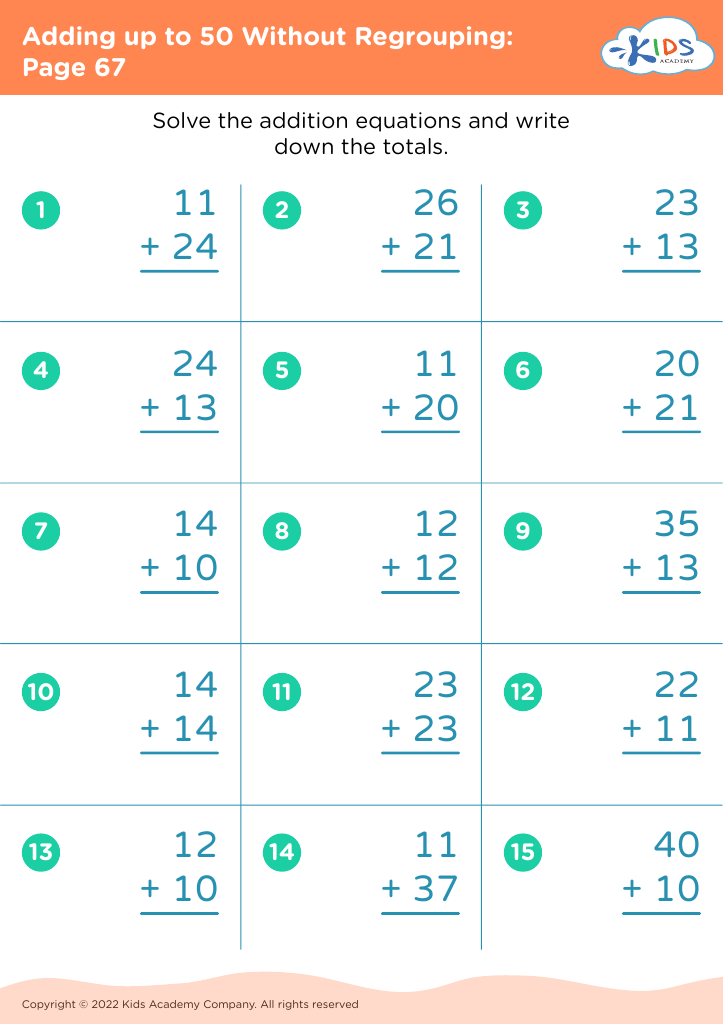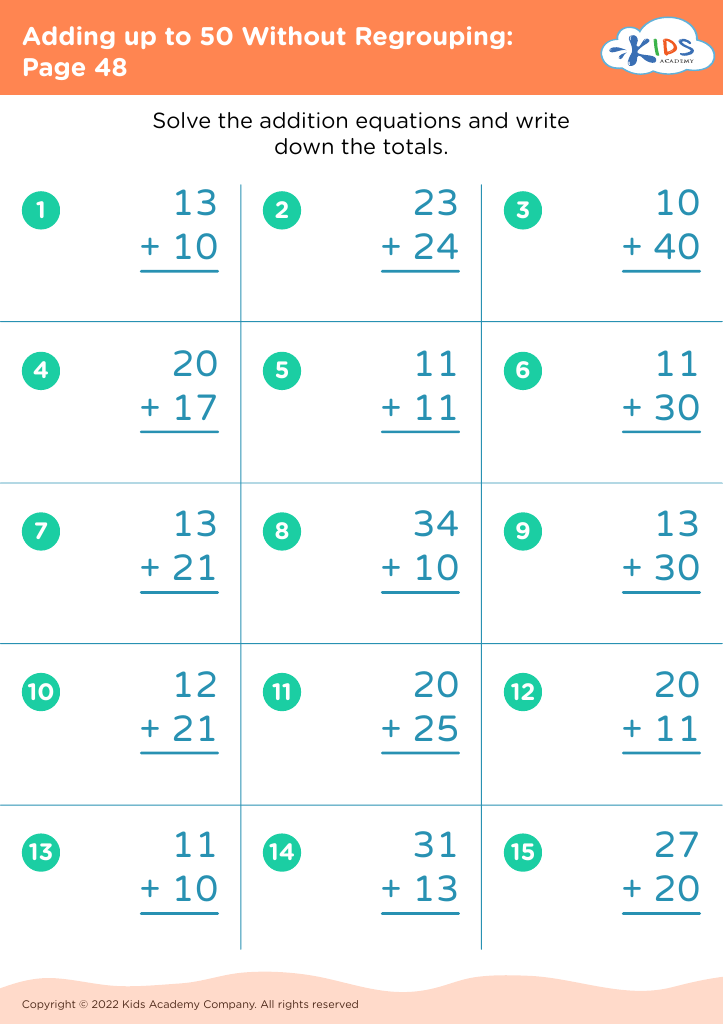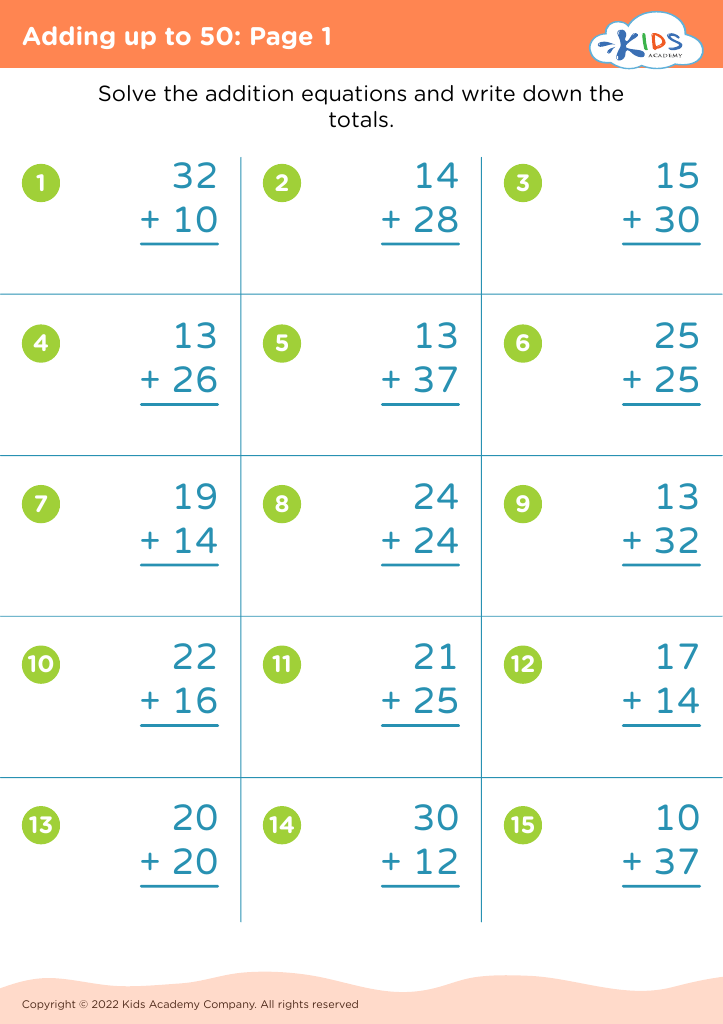Basic Addition Adding up to 50 Worksheets for Ages 4-7
7 filtered results
-
From - To
Explore our engaging "Basic Addition Adding up to 50 Worksheets" designed for children aged 4-7! These worksheets are perfect for young learners to practice their addition skills, reinforcing foundational math concepts in a fun and interactive way. Featuring colorful illustrations and age-appropriate exercises, our resources help children grasp the basics of adding numbers while building confidence in their math abilities. Each worksheet contains various exercises that cater to different learning styles, ensuring an enjoyable learning experience. Empower your child's mathematical journey and watch them shine as they master basic addition! Download and start adding fun to learning today!
Basic addition is a fundamental skill that lays the groundwork for a child's mathematical understanding and overall academic success. For children aged 4-7, learning to add numbers up to 50 cultivates critical thinking and problem-solving abilities. It nurtures cognitive development by enhancing logical reasoning, which is crucial for future mathematical concepts such as subtraction, multiplication, and division.
When parents and teachers prioritize basic addition, they empower children to develop a strong numerical sense. This helps them understand everyday contexts where math is applicable—such as shopping, counting, and sharing—making math more relatable and less intimidating. Regular practice with addition also boosts confidence, as children see their progress and become more willing participants in mathematical activities.
Moreover, fostering foundational math skills encourages persistence and resilience, qualities vital for all learning areas. Engaging in addition games, activities, and positive reinforcement creates a joyful learning environment that instills a love for learning. In summary, caring about basic addition for young learners is essential for their academic journey, laying the groundwork for future success in math and beyond.



















